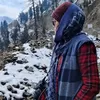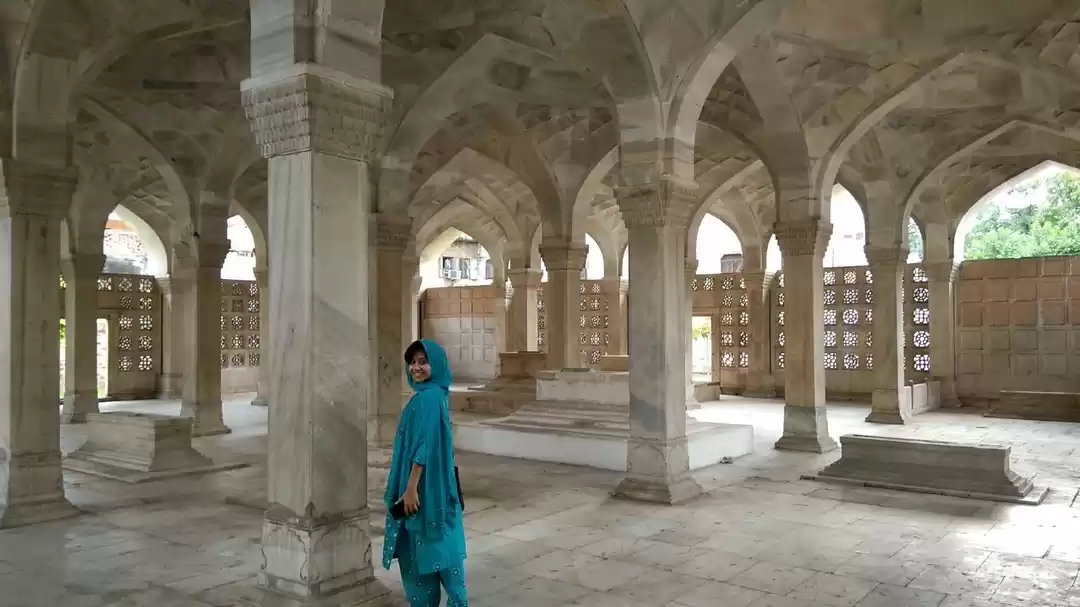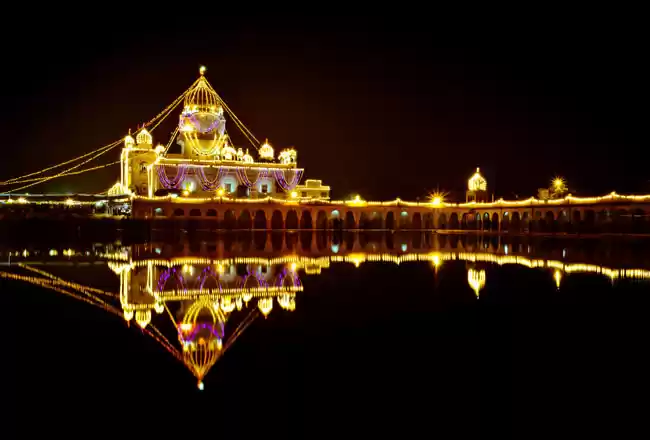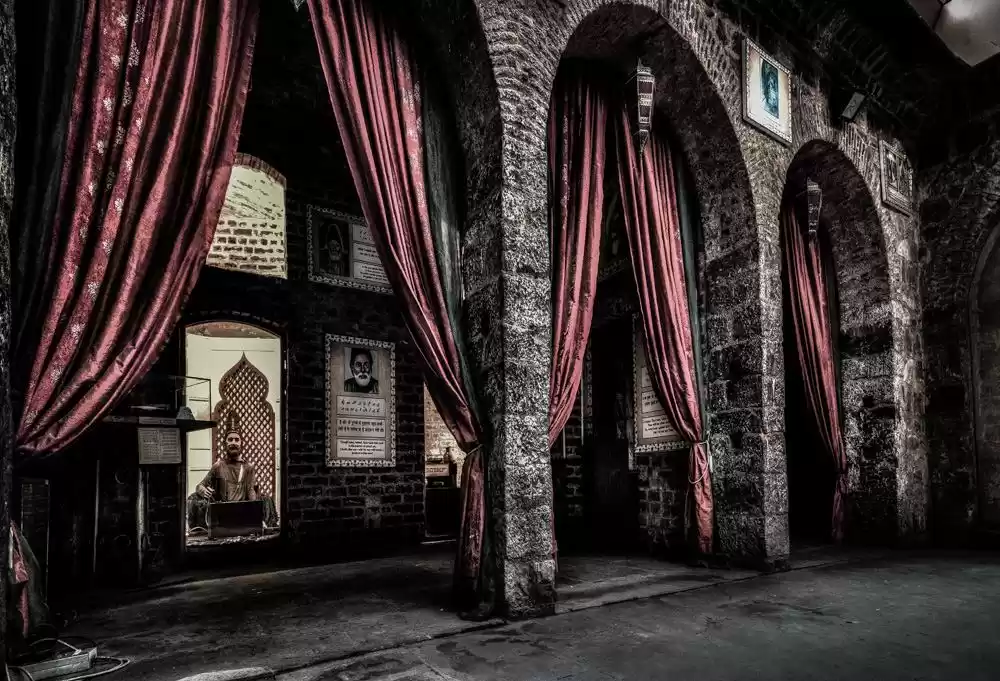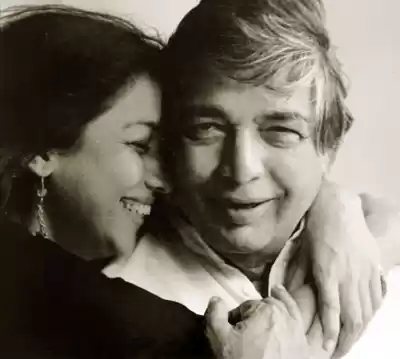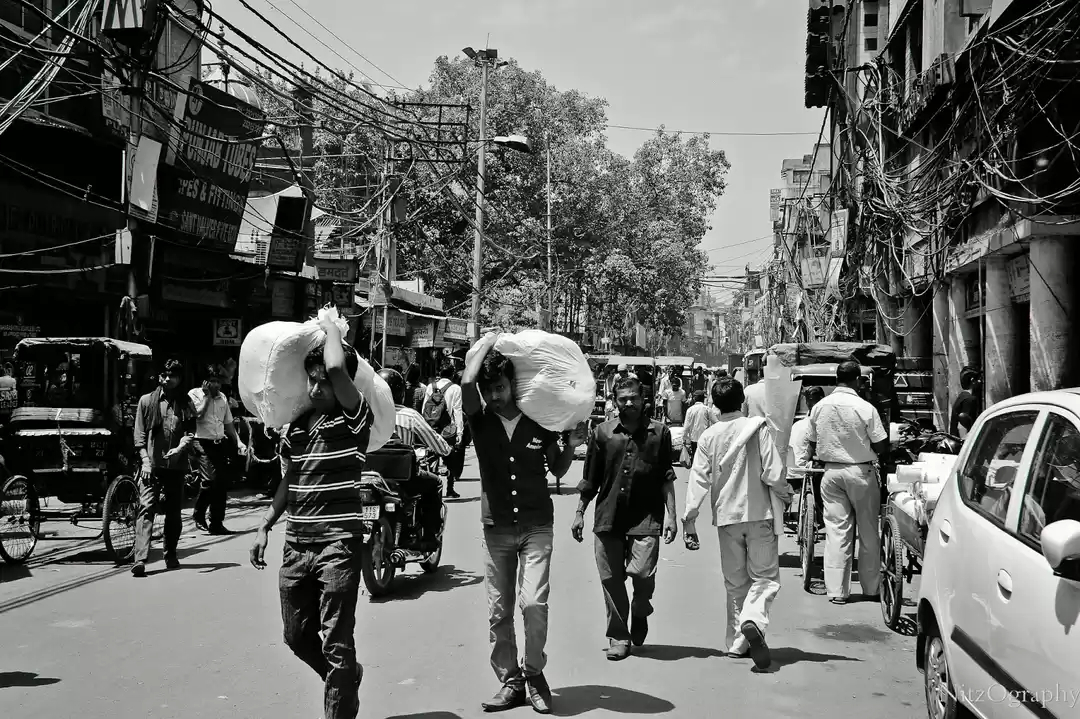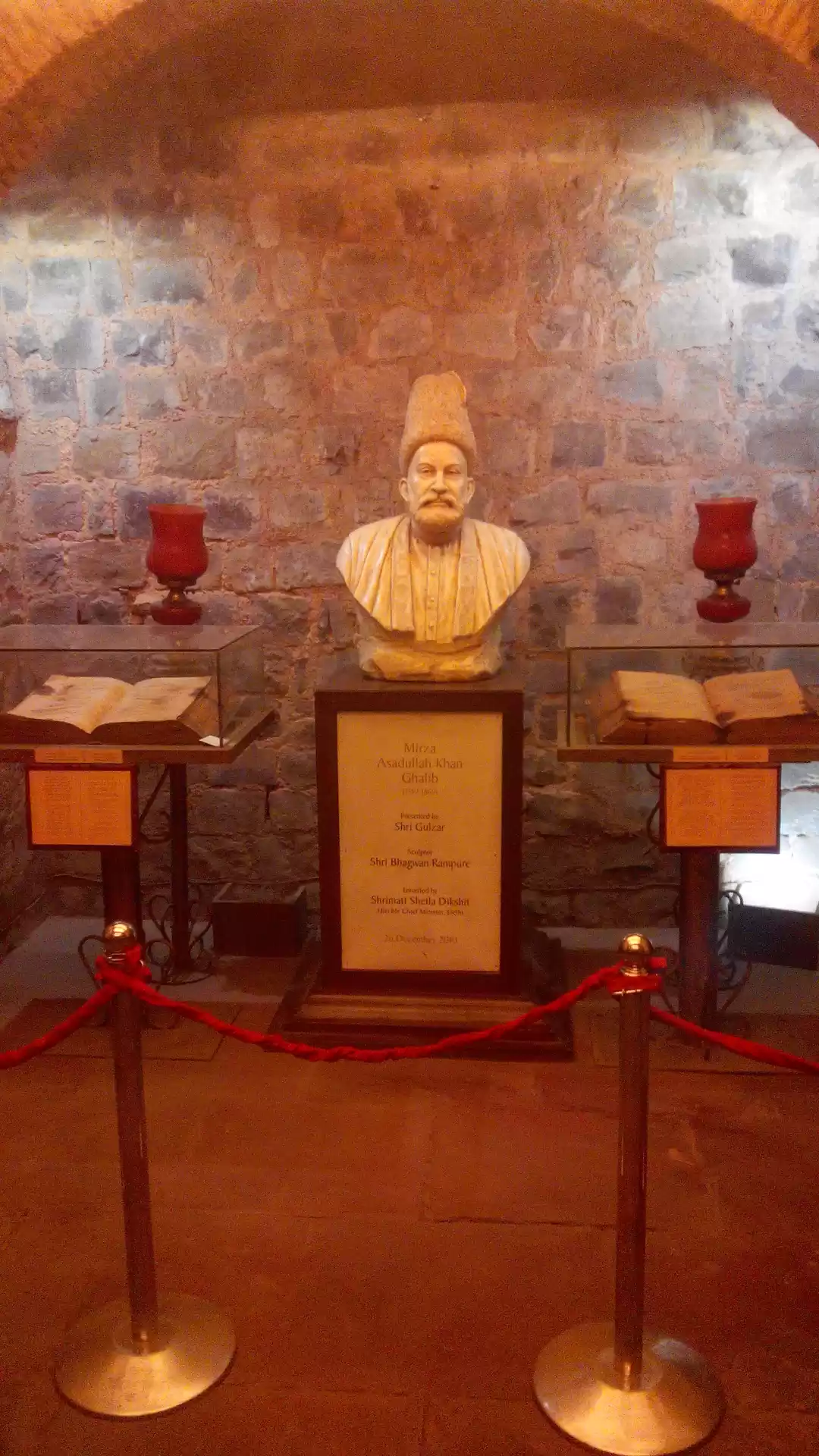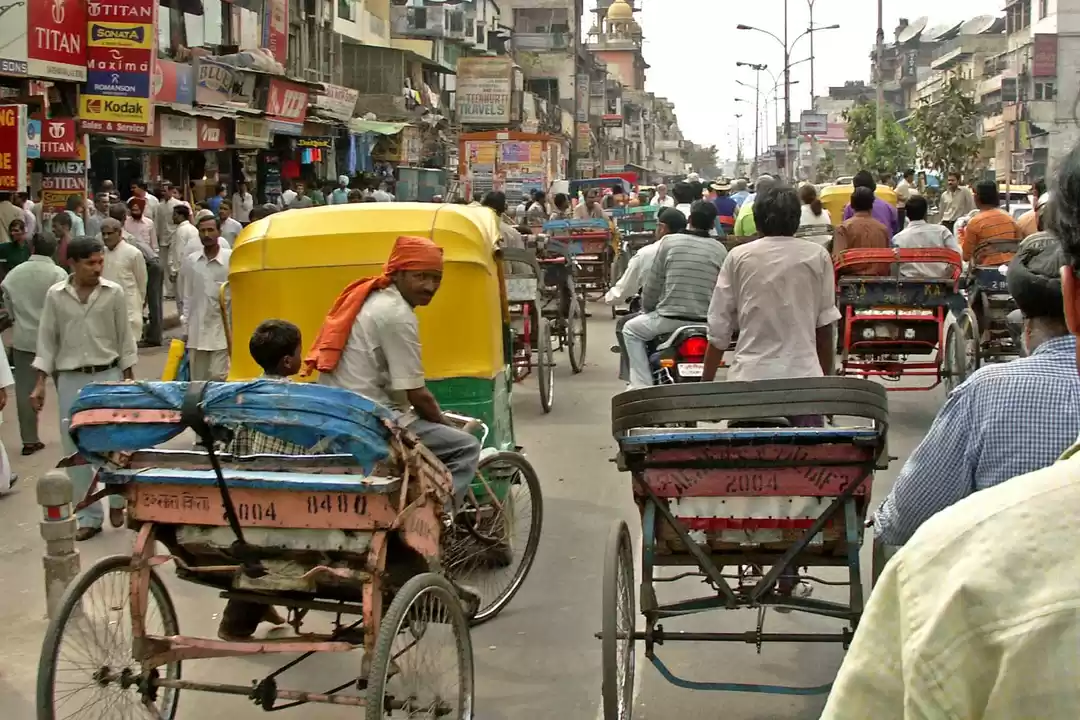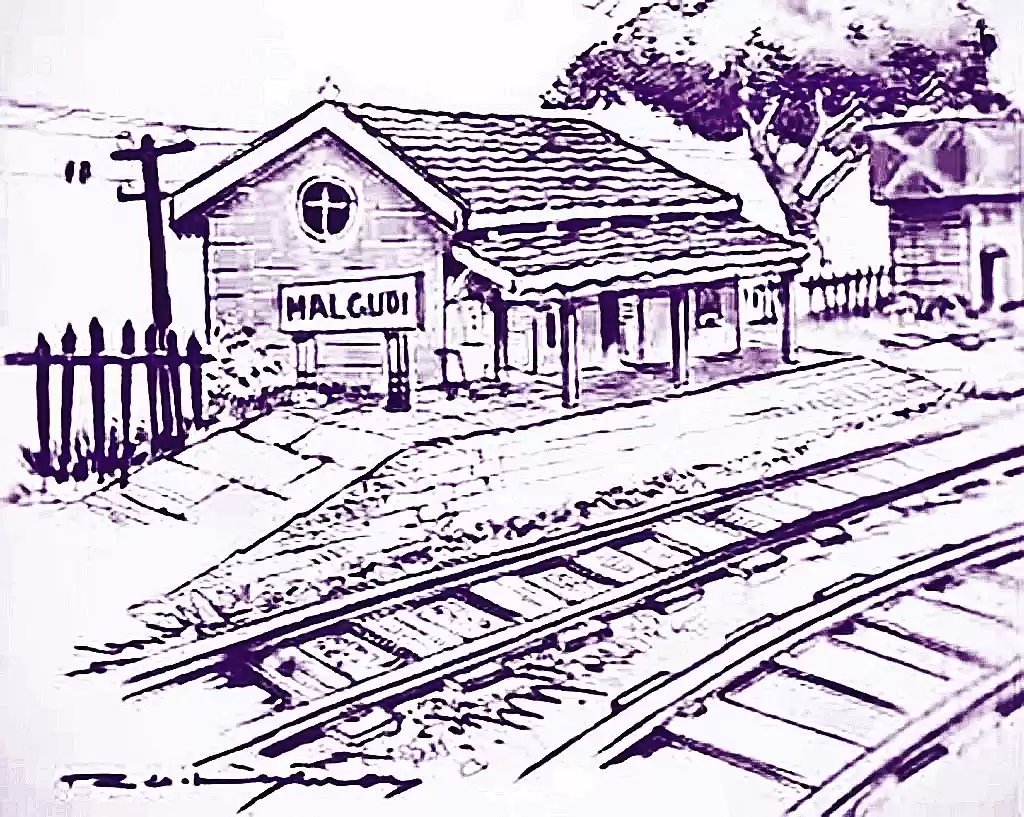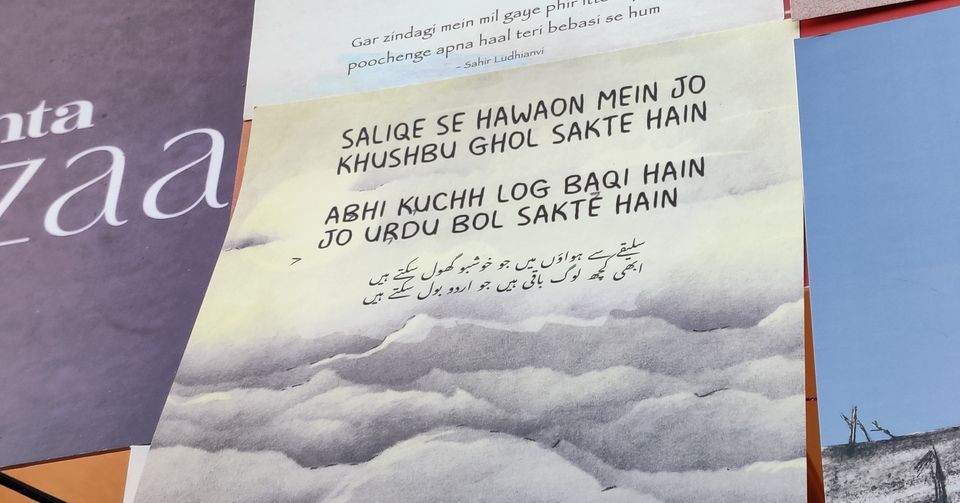
Na Ko Hindu Na Musalman
- Gurunanak Devji
Every year in December Jashn-e-Rekhta, a 3-day event which celebrates the pluralistic culture of India, warms up the chilly Delhi air with its message of hope and harmony in a time when the divisive forces threaten to engulf India. In this event artists belonging to different faiths and regions come together to celebrate shared linguistic, literary and cultural traditions that have evolved over the centuries. The entry to this fest is free.

This year, this event, which celebrates the language of Urdu in its many creative forms, took place at Major Dhyan Chand National Stadium in New Delhi. The programmer would begin at 11 am and extend up to 9 pm, with four parallel sessions being held under four different shaamiyaanas.
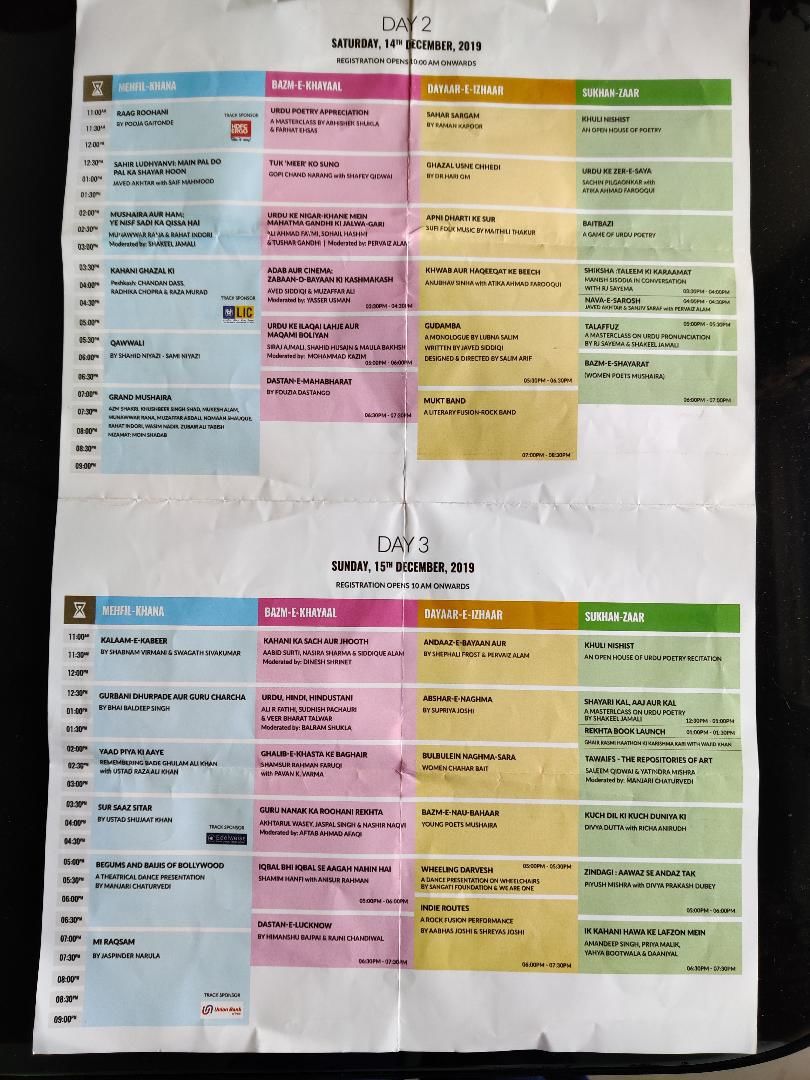

The sessions included a vast array of events ranging form Ghazal, Qawwalli, Sufi, bhakti songs and rock fusion performances to academic discussions, work shops on Ghazal appreciation and of course the grand Mushaira .

On the second day, the Ghazal and Sufi song performances by Pooja Gaitonde was mesmerising. Pooja Gaitonde was on the harmonium. Her other team members included Abhishek Mestry on the Keyboard and Athar Hussain Khan on the Tabla.
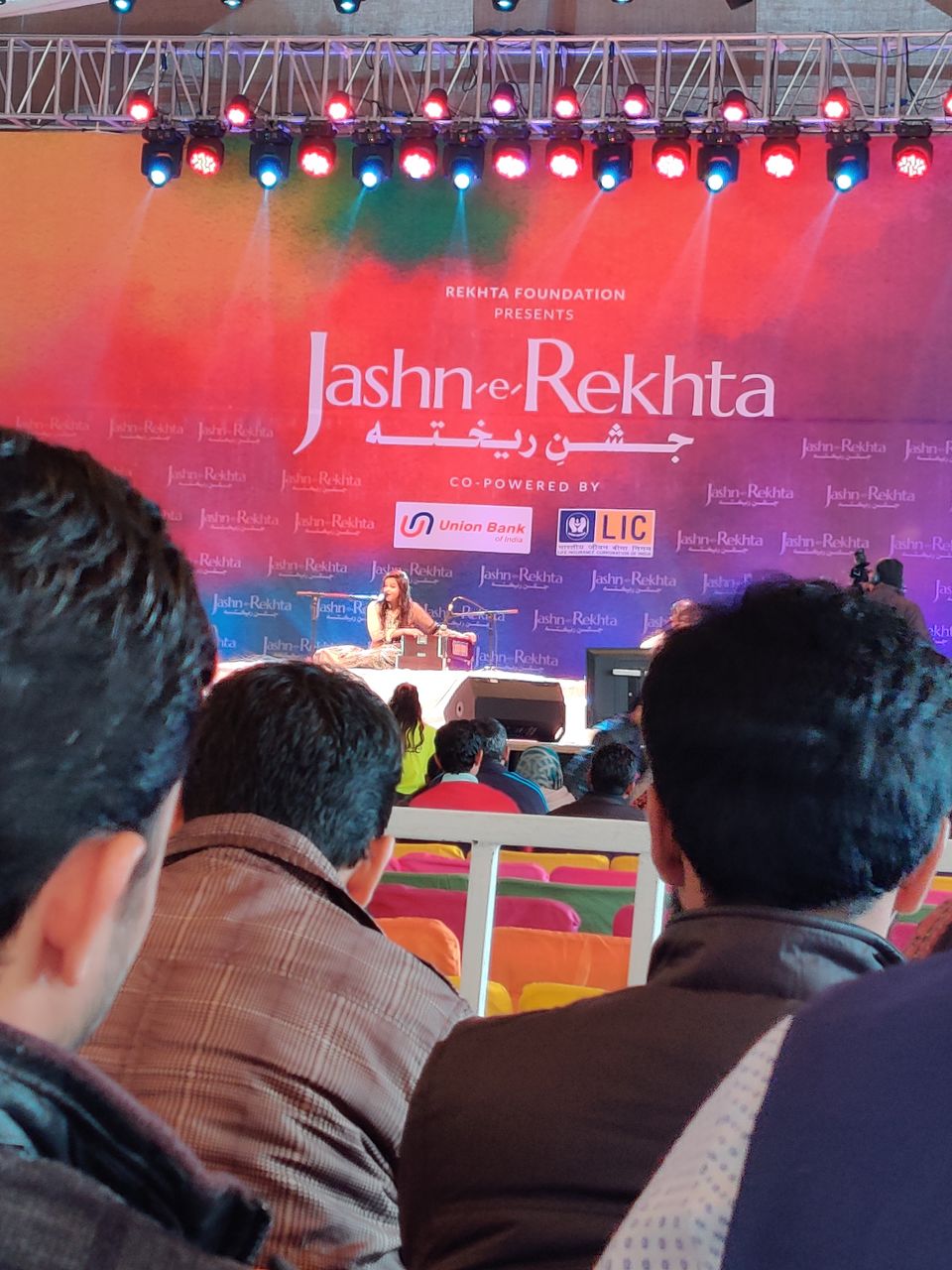
Indian music tradition has managed to retain its pluralistic nature like the erstwhile Bhakti and Sufi Sants who had both Hindu and Muslim disciples. Pooja was groomed in light classical by Shri. Vikas Bhatwadekar, Smt. Dhanashri Pandit Rai, Shri. Lalji Desai, Shri. Santosh Kudva, Swamy Chaitanya Swaroopji of Shree Vallabh Sangeet Vidyalaya, Sion, Mumbai. She learnt Sufi and Ghazal singing from Ustad Munnwar Masoom Sayeed Khan.
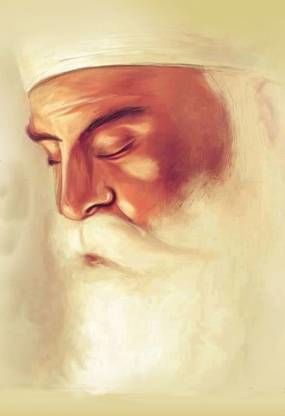
"चिश्ती ने जिस ज़मीं पे पैग़ामे हक़ सुनाया,
नानक ने जिस चमन में बदहत का गीत गाया,
तातारियों ने जिसको अपना वतन बनाया,
जिसने हेजाजियों से दश्ते अरब छुड़ाया,
मेरा वतन वही है, मेरा वतन वही है॥"
Bhai Baldeep Singh, who among other things, is a classical vocalist (Dhurpad, Vār and Chaṅtt) and joṛī and pakhāwaj exponent, enlightened the audience with the simple yet universal message of Guru Nanakj Devji and Guru Granth Sahib. He has descended from a long tradition of Gurbani singers. Tradition says that when Guru Nanak re-appeared after having apparently drowned in the River Beas, the first statement he made was “Na Ko Hindu, na Musalman”, implying that God is one and people may call him by different names. The outer rituals of organised religions divide humanity rather than bringing them together.
Gurunank Devji's faithful companion was Mardana, a Muslim mirasi (traditional musician). Following the tradition of this inclusive outlook of Sikhism, Bhai Baldeep Singh's musical accompaniments included tabla played by Ram Pandey, a Sitar played by Sardar Manjeet Singh and a Tanpura played by Anwar Khan .

"Rekhta" is one of the names by which Hindi / Hindavi / Urdu was known in the 18th and 19th centuries. When Ghalib chose to pay tribute to Mir, he wrote: “Rekhte ke tumheen ustad nahin ho Ghalib, kahte hain agle zamaane mein koi Mir bhi thaa.” (Ghalib, you are not the only master of poetry in Rekhta. It is said that there was Mir too in the past.) Rekhta has at least three meanings – broken, scattered and mixed. In comparison with the sophisticated and well-structured Persian, Rekhta or Urdu sounded broken and mixed as it had the linguistic structure of the khari boli and was colloquial in nature. Urdu, which is a syncretic language containing words from Sanskrit, Khadi boli, Persian, Arabic and Turkish, is much maligned today and labelled as the 'language of the invaders'. However how many of us know that the Guru Granth Sahib has as many as 3000 entries of Persian and Arabic words?
ਯਕ ਅਰਜ ਗਫਤਮ ਪੇਸਿ ਤੋ ਦਰ ਗੋਸ ਕਨ ਕਰਤਾਰ ॥
yak araj gufatham paes tho dhar gos kun karathaar
I offer this one prayer to You; please listen to it, O Creator Lord.
ਹਕਾ ਕਬੀਰ ਕਰੀਮ ਤੂ ਬੇਝਬ ਪਰਵਦਗਾਰ ॥੧॥
hakaa kabeer kareem thoo baeaib paravadhagaar
You are true, great, merciful and spotless, O Cherisher Lord.
For an easier interpretation of the Gurbani, the Centre of Studies on Sri Guru Granth Sahib at the Guru Nanak Dev University has undertaken a project to come up with a Persian-Arabic glossary for the Guru Granth Sahib.
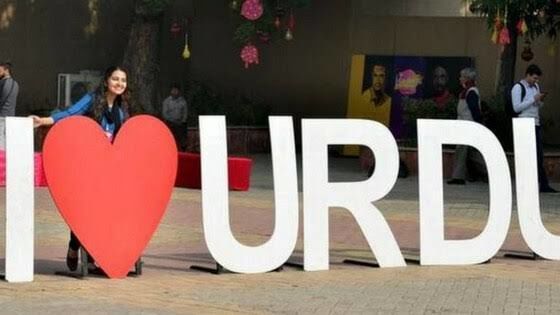
On the last day Shujat Husain Khan entertained us with his melodious voice and sitar playing skills. He is an Indian musician and sitar player of the Imdadkhani gharana (school of music). He has recorded over 60 albums and was nominated for a Grammy Award for Best World Music Album for his work with the band Ghazal with Iranian musician Kayhan Kalhor. He also sings frequently, ranging from Hindustani classical, ghazals to Kabir bhajans. His style of sitar playing, known as gayaki ang which aims to imitate the human voice. During his performance he was accompanied by Chaubey Sahab on the tabla and Mustafa Sahab on the Sitar.

एक राम दशरथ का बेटा , एक राम घट-घट में बैठा
एक राम का सकल पसारा , एक राम सबहूँ ते न्यारा...
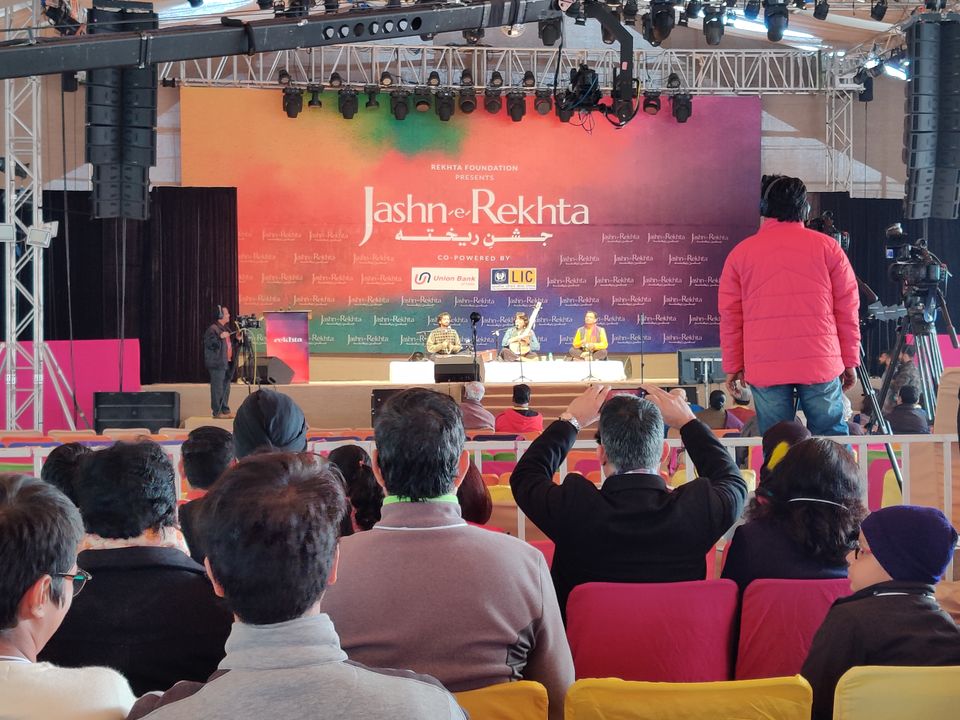
Shabnam Virmani is a staunch advocate of a pluralistic and inclusive India. She is also a documentary film maker and artist in residence at the Srishti School of Art, Design and Technology in Bangalore since 2002. Co-founder of the Drishti Media Arts and Human Rights collective, she has directed several documentaries, some of which have won awards. In 2002, she co-directed an award-winning community radio program with the Kutch Mahila Vikas Sangathan in Gujarat. She sings Kabir with a passion and pain that a few can.
मोको कहाँ ढूंढें बन्दे,
मैं तो तेरे पास में ।
ना तीरथ में ना मूरत में, ना एकांत निवास में ।
ना मंदिर में, ना मस्जिद में, ना काबे कैलाश में ॥
ना मैं जप में, ना मैं तप में, ना मैं व्रत उपास में ।
ना मैं क्रिया क्रम में रहता, ना ही योग संन्यास में ॥
नहीं प्राण में नहीं पिंड में, ना ब्रह्माण्ड आकाश में ।
ना मैं त्रिकुटी भवर में, सब स्वांसो के स्वास में ॥
खोजी होए तुरत मिल जाऊं एक पल की ही तलाश में ।
कहे कबीर सुनो भाई साधो, मैं तो हूँ विशवास में ॥
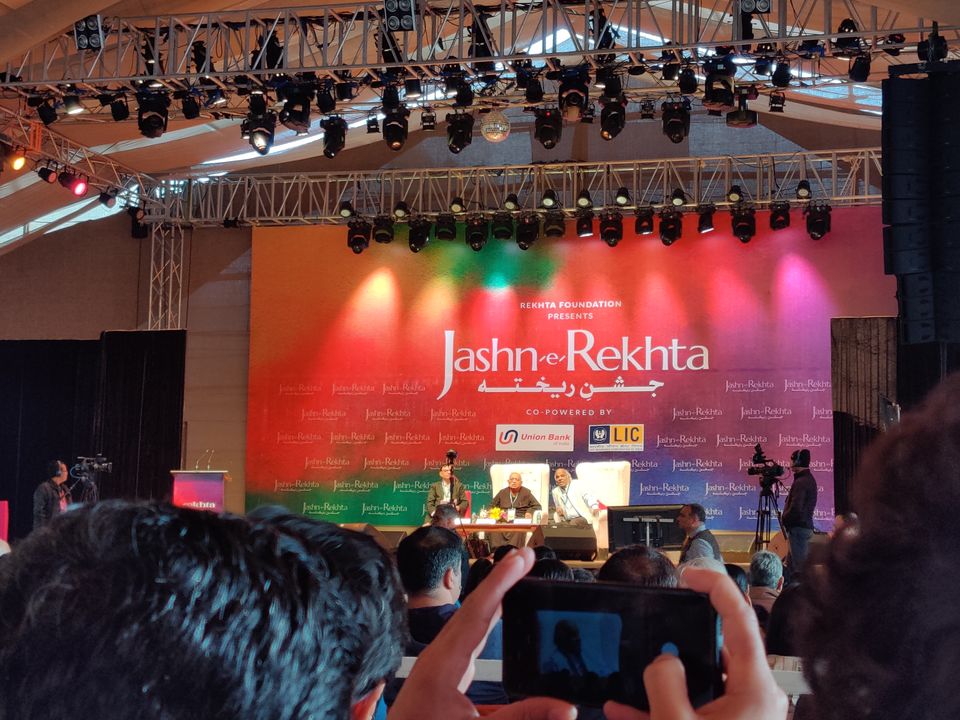
Munnawar Rana and Rahat Indori, the last among the greats of Urdu Shayari talked about the changing nature of Mushaira, its falling literary standards and increasing commercialization.
Munnawar Rana is winner of Sahitya Academy award for his Urhu compostion, Shahadaabaa.
जगमगाते हुए शहरों को तबाही देगा
और क्या मुल्क को मग़रूर सिपाही देगा
पेड़ उम्मीदों का ये सोच के न काटा कभी
फल न आ पाएँगे इसमें तो हवा ही देगा
तुमने ख़ुद ज़ुल्म को मेयारे-हुक़ुमत समझा
अब भला कौन तुम्हें मसनदे-शाही देगा
जिसमें सदियों से ग़रीबों का लहू जलता हो
वो दीया रौशनी क्या देगा सियाही देगा
मुंसिफ़े-वक़्त है तू और मैं मज़लूम मगर
तेरा क़ानून मुझे फिर भी सज़ा ही देगा
किस में हिम्मत है जो सच बात कहेगा ‘राना’
कौन है अब जो मेरे हक़ में गवाही देगा
मेयारे-हुक़ुमत- rule of law/standard of Government
मसनदे-शाही - royal seat
मुंसिफ़े-वक़्त - time symbolized as the judge
मज़लूम- victim
Rahat Indori is an Indian Bollywood lyricist and Urdu language poet.He is also a former professor of Urdu language and a painter. Prior to this he was a pedagogist of Urdu literature at Indore University.
He is known for sharp and witty shayari, showing a mirror to the society and the powers that be:
...लगेगी आग तो आएँगे घर कई ज़द में
यहाँ पे सिर्फ़ हमारा मकान थोड़ी है...
...सभी का ख़ून है शामिल यहाँ की मिट्टी में
किसी के बाप का हिन्दोस्तान थोड़ी है...

In addition there were book shops promoting Urdu, shops selling art works and show casing the beautiful art of calligraphy.

There was a food court serving Mughalai to Turkish cousine as well as chaat , chole bhature and parathe from Chandni Chowk.
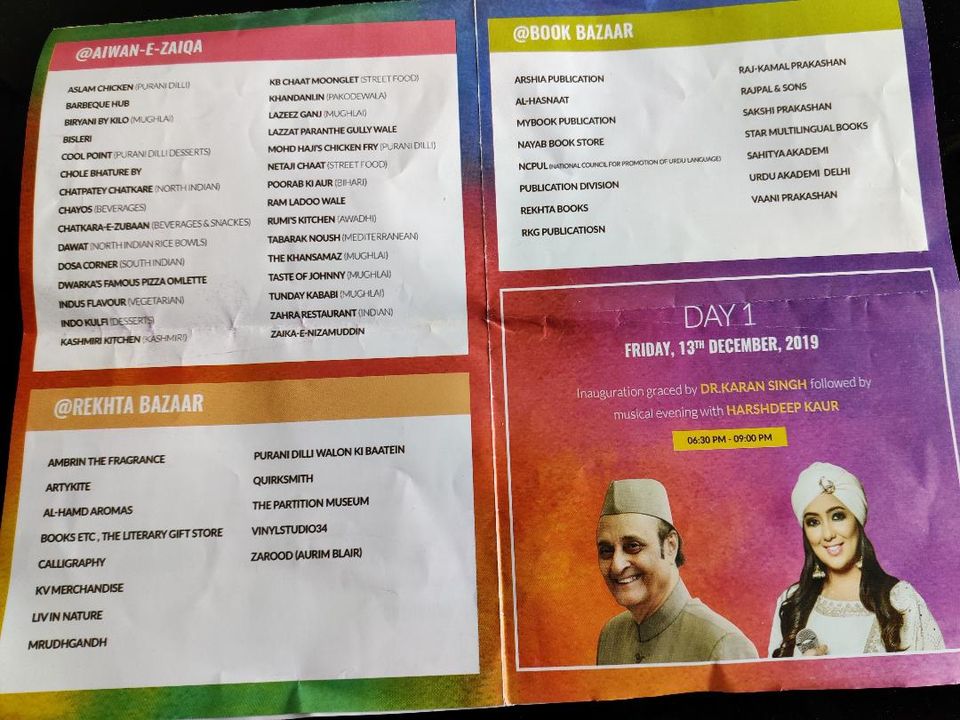
Rekhta Kaleidoscope:
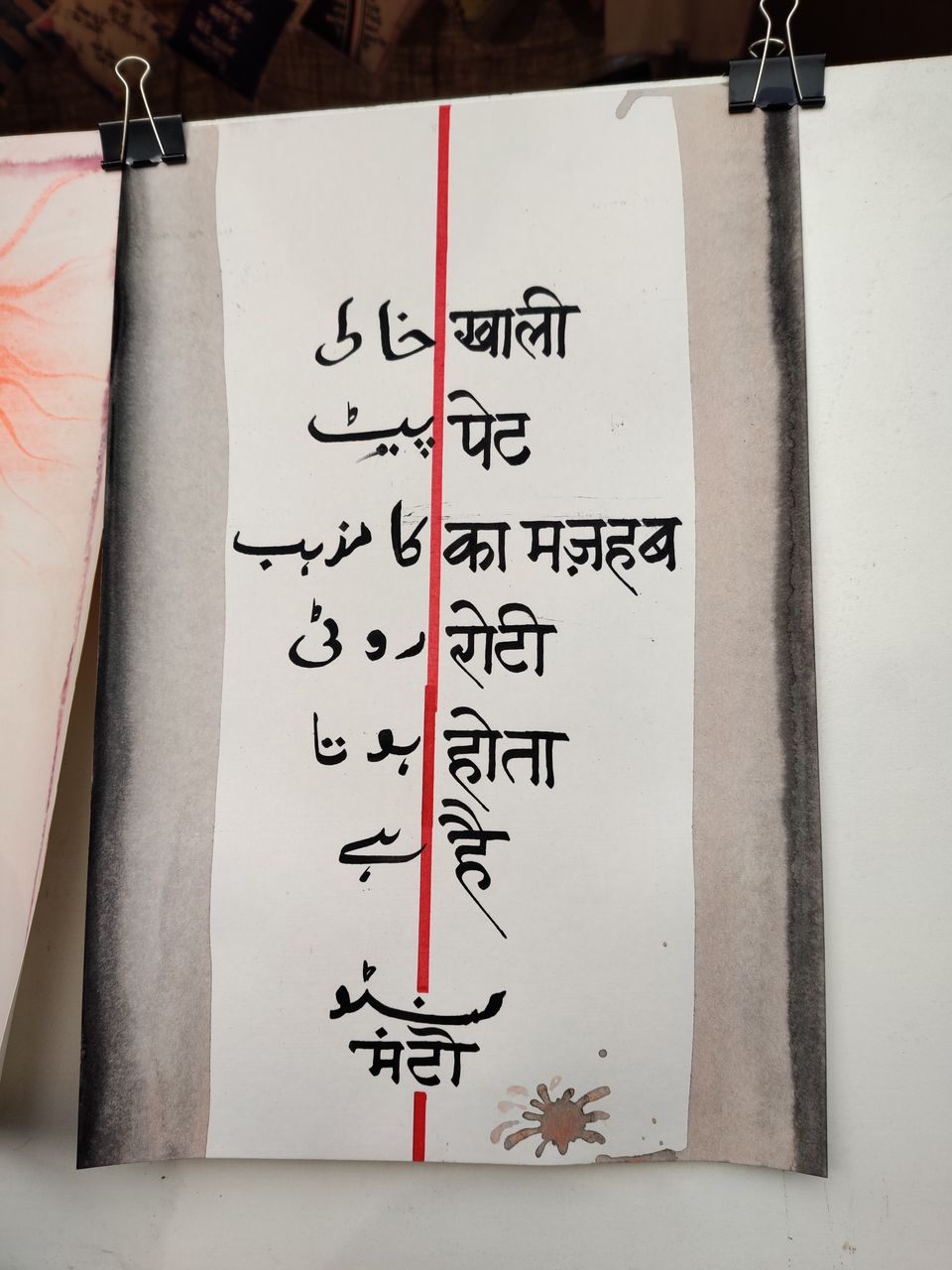
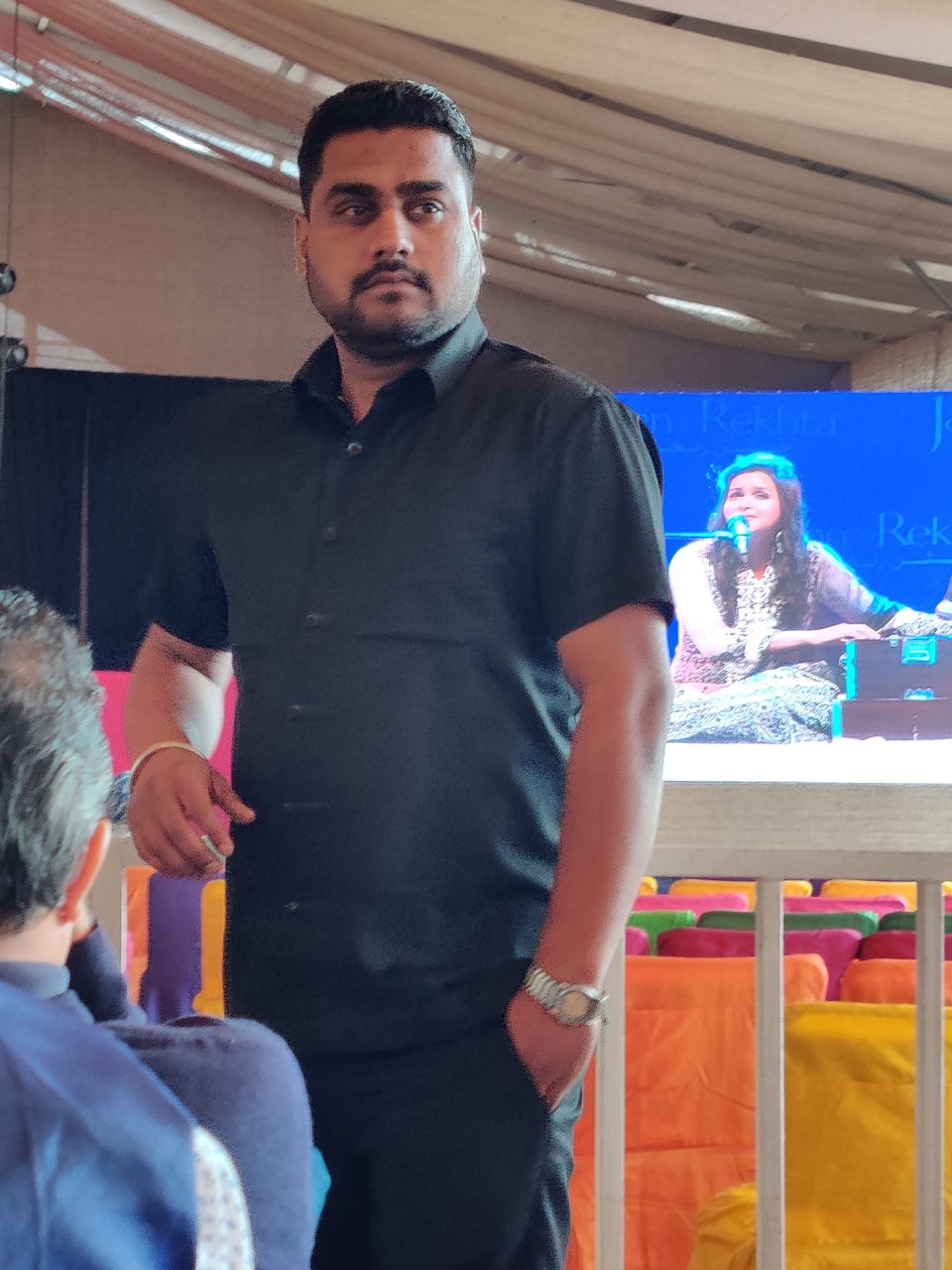
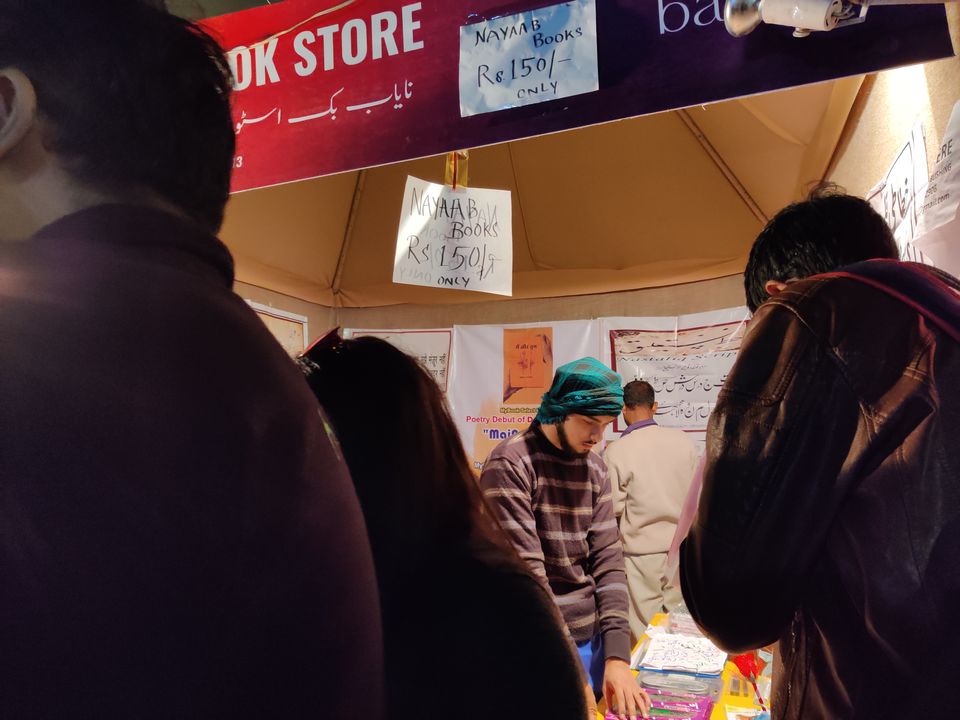
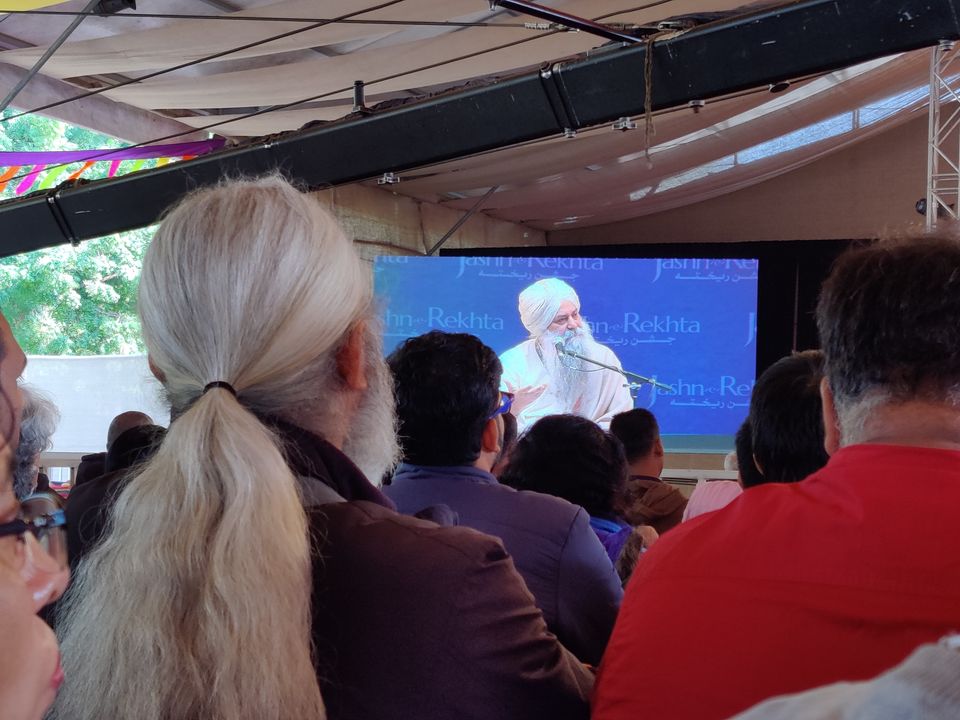
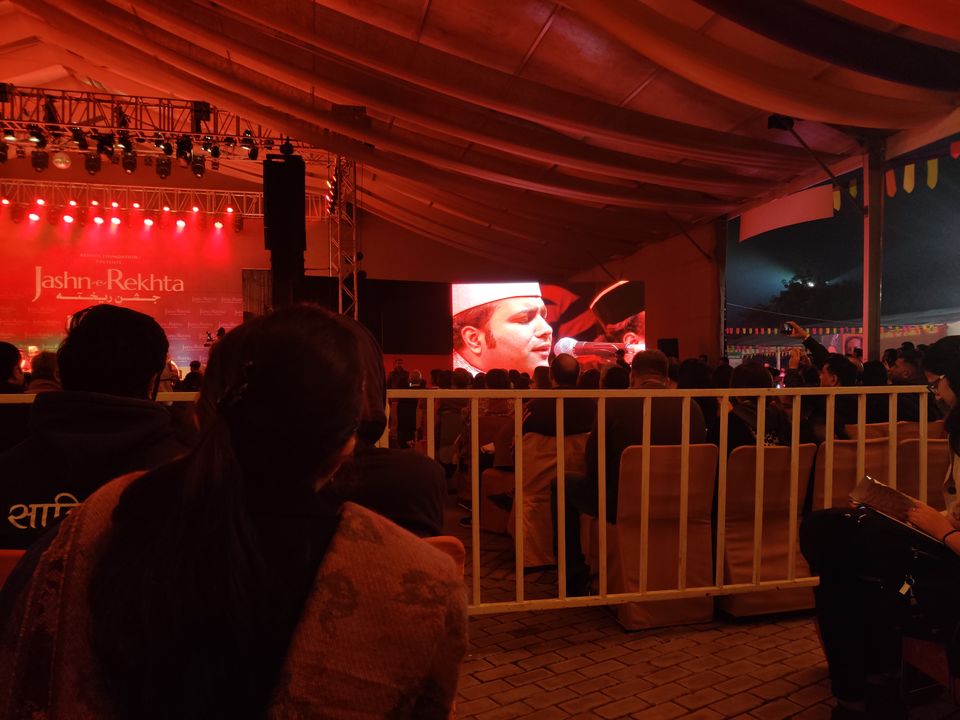

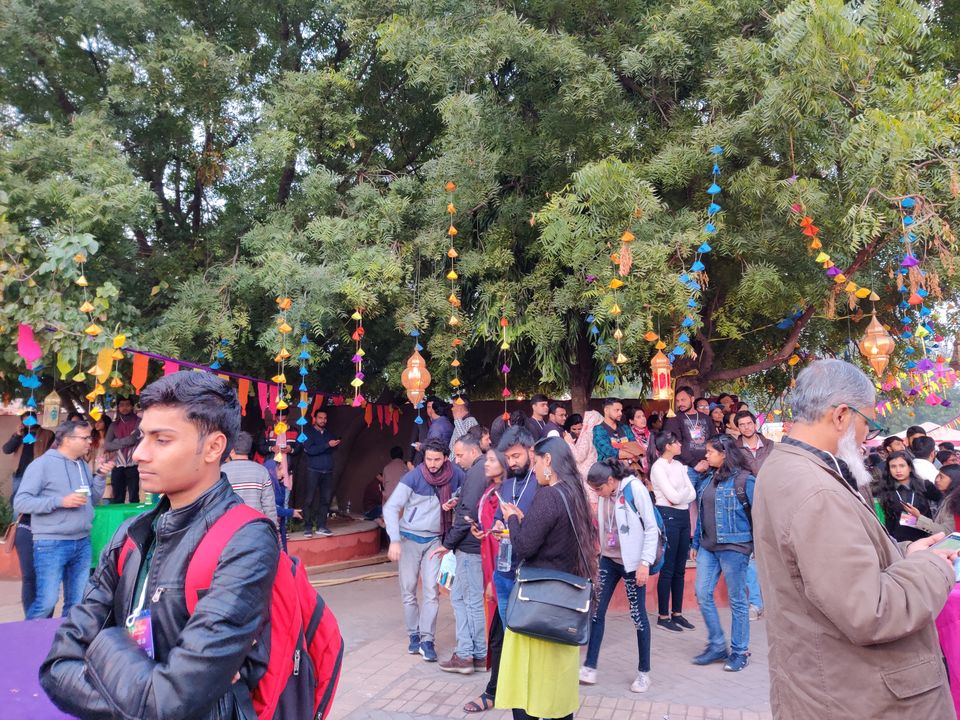
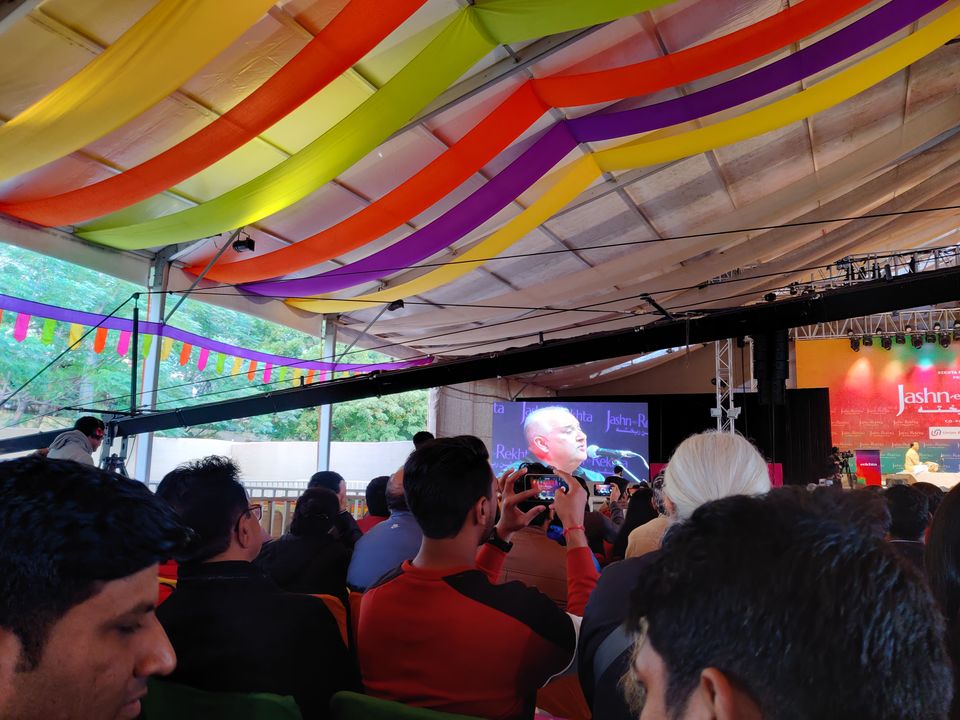
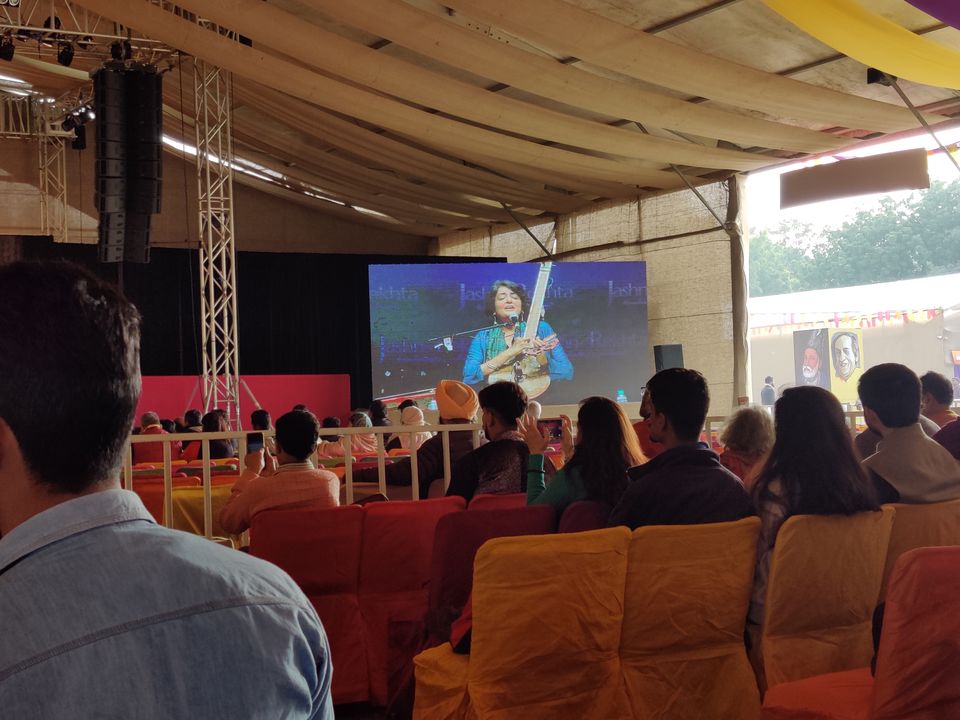
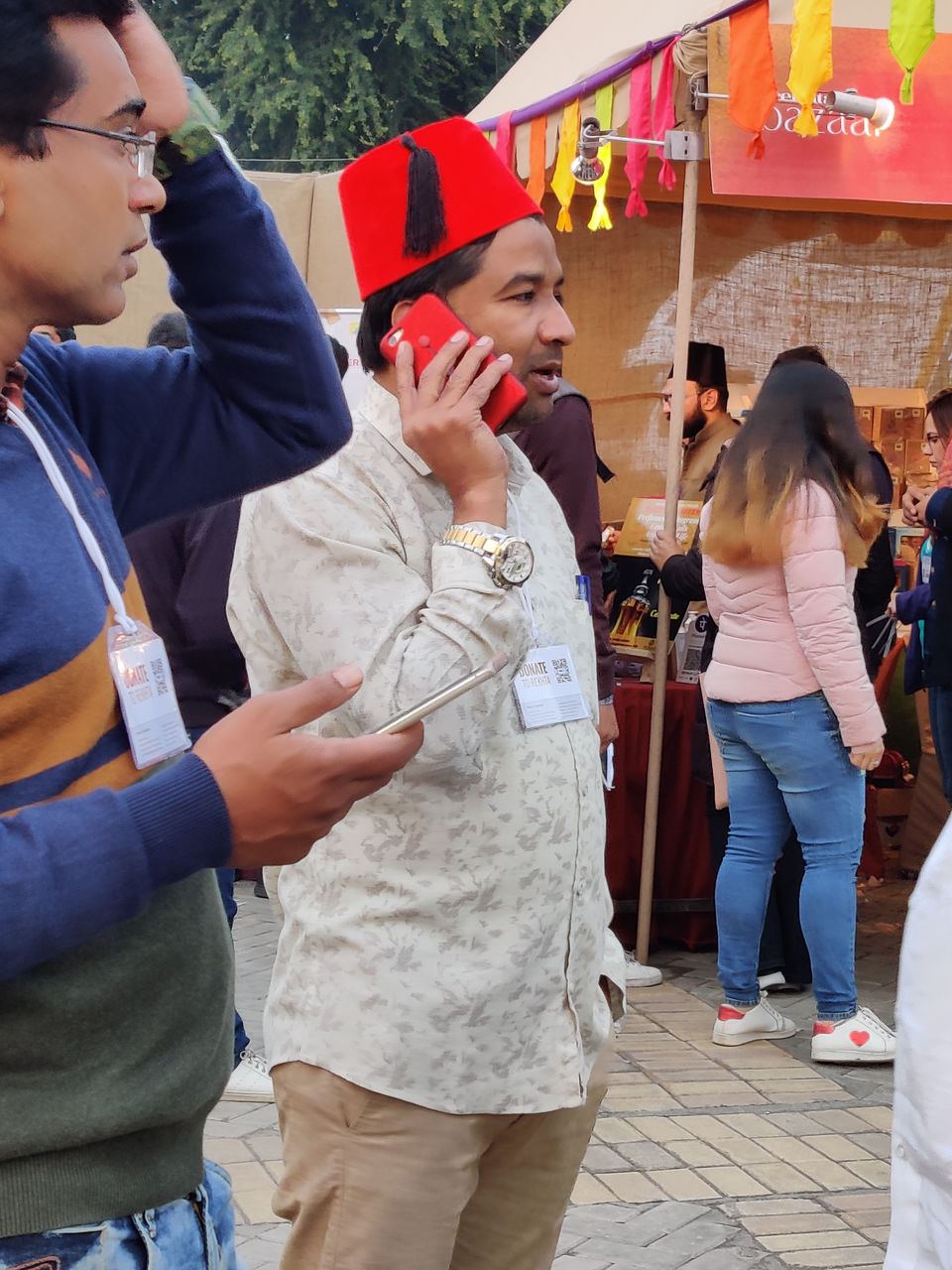
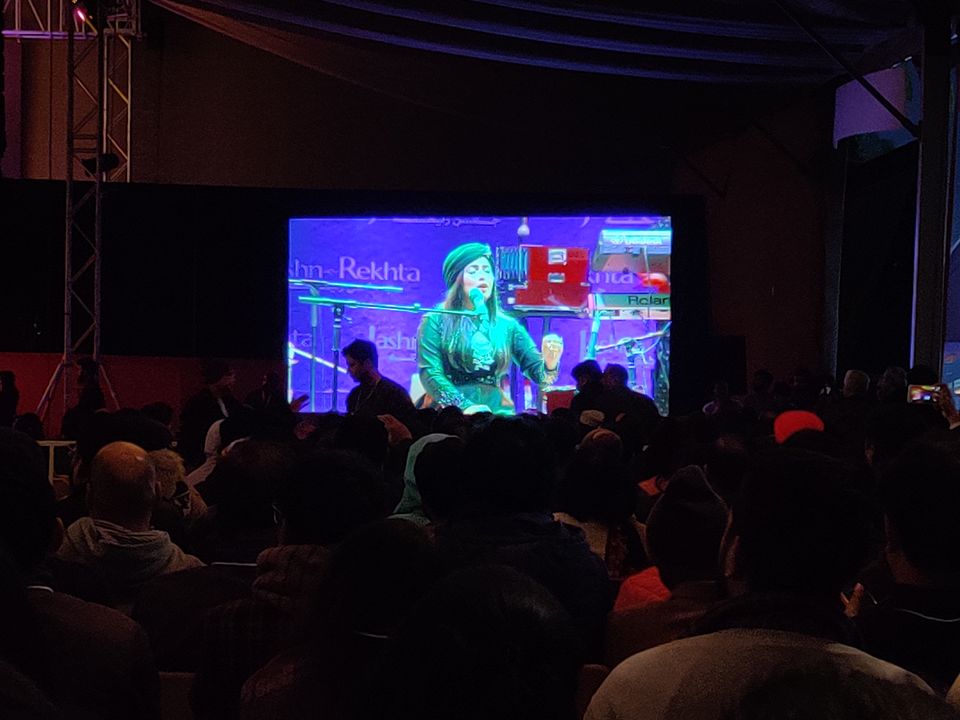
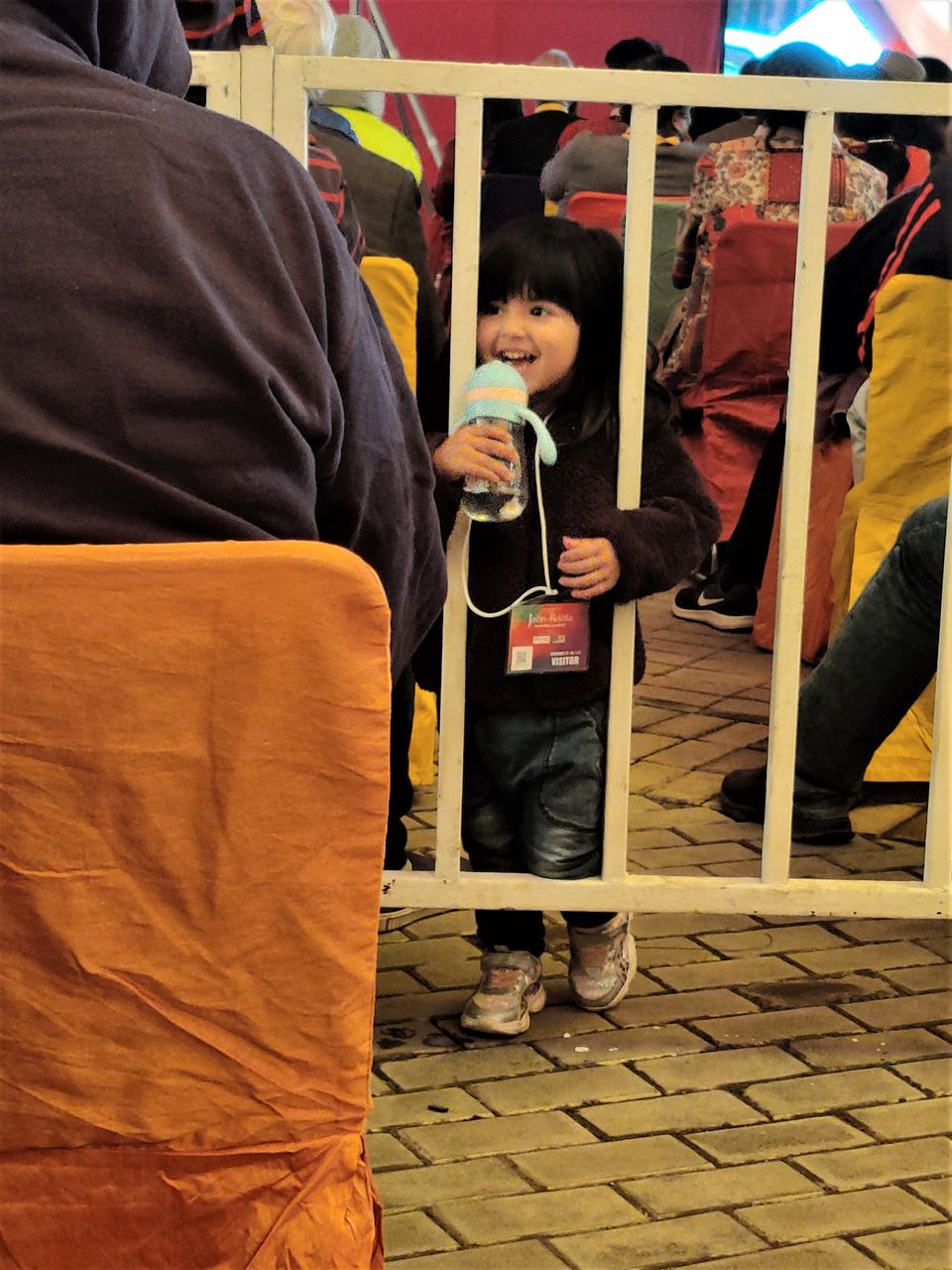
Photo Credits: Rupa Abdi
NOTE:
All the programms of this festival will soon be available on the You Tube channel of Jashn-e-Rekhta.

